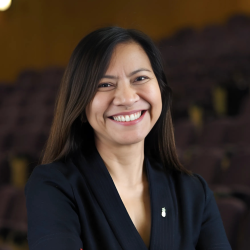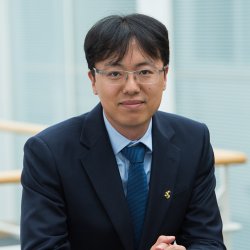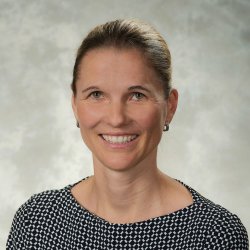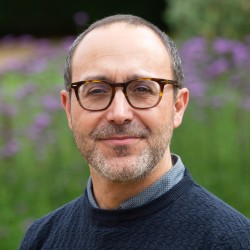Surrey’s School of Hospitality and Tourism Management teams up with UNWTO and the G20 to foster sustainable and inclusive tourism
Three academics from the University of Surrey have contributed to the United Nations World Tourism Organisation’s AlUla Framework for Inclusive Community Development through Tourism, developed for the 2020 G20 Presidency. Its aim: to inspire and guide countries in their adoption and development of inclusive and sustainable tourism policies and practices within G20 member states and beyond, in line with the Sustainable Development Goals.

Rock formations near ALUla in the deserts of Saudi Arabia
The report, entitled AlUla Framework for Inclusive Community Development Through Tourism, was developed by a multidisciplinary team from the School of Hospitality and Tourism Management at the University of Surrey and the Center for the Governance of Change at IE University, led by Dr Albert Kimbu, with support from Dr Anyu Liu and Dr Isabel Rodriguez, and additional research support provided by MSc student Hannah Gooding.
An advisory panel was set up to provide advice and feedback on the different parts of the report, including SHTM’s Professor Allan Williams, Professor Iis Tussyadiah, Professor Susanne Becken and Professor Xavier Font, as well as Professor Borja Santos and Professor Susana Malcorra from IE University, Spain.
The framework addresses the national governments in G20 countries and beyond, and provides a set of concrete programmes, initiatives and recommendations to support governments and other key stakeholders in the tourism sector at all levels based around four pillars of action – empowerment, safeguarding, prosperity and collaboration – through a model of tourism development based on Public-Private-Community (PPC) partnerships.
The key aim is to foster a holistic approach to inclusive community development through tourism, in line with the G20 Presidency’s objectives of:
- Empowering People: creating conditions in which all people, especially women and youth, can live, work and thrive
- Protecting the Planet: fostering collective efforts to protect our commons
- Shaping New Frontiers: adopt long-term and bold strategies to utilise and share the benefits of innovation.
The report highlights that tourism is one of the fastest-growing and most resilient socioeconomic sectors of our times, with tourism accounting for seven per cent of global trade in 2019. The sector generates millions of jobs both directly and indirectly, including jobs for women, youth and those living in rural communities. Furthermore, it promotes territorial cohesion and socioeconomic inclusion for the most vulnerable, while maintaining natural and cultural heritage, supporting conservation, safeguarding endangered species, and ensuring long-standing traditions can survive.
The report also addresses the impact Covid-19 has had on the tourism sector, which is among the hardest hit, stressing that the pandemic also provides an opportunity to rethink the tourism sector and its contribution to people, as well as the impact it has on the planet.
As a result of the UNWTO framework, Tourism Ministers of the G20 nations have committed to stepping up their efforts to place sustainability and inclusion at the heart of tourism recovery and future growth.
Regarding the collaboration with UNWTO, Professor Graham Miller, Executive Dean of the Faculty of Arts and Social Sciences, commented: “I am delighted to see the University of Surrey contributing to this thought leadership on how the tourism sector can re-shape itself to be more sustainable for people and the planet. The sector has an opportunity to change and the report we have authored provides examples of how we can go about delivering this change.”
Find out more about our courses in the School of Hospitality and Tourism Management.
Discover details of the report and executive summary.
Featured Academics
Media Contacts
External Communications and PR team
Phone: +44 (0)1483 684380 / 688914 / 684378
Email: mediarelations@surrey.ac.uk
Out of hours: +44 (0)7773 479911







